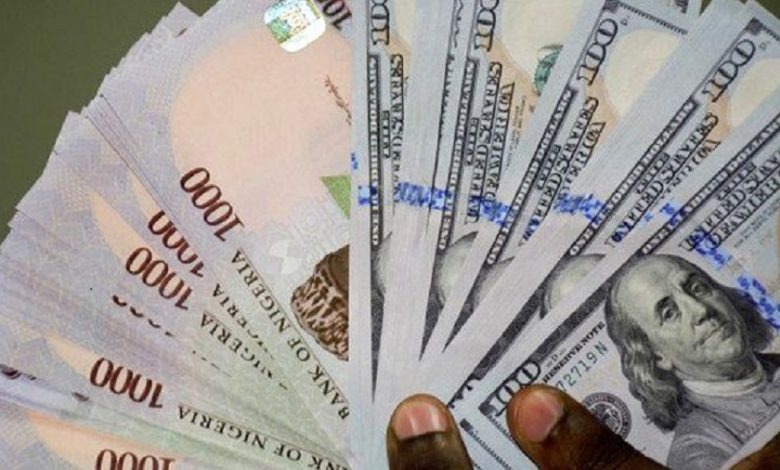
The naira depreciated to N588 per dollar at the parallel market as the nation’s foreign exchange (forex) reserves dropped for the third consecutive time.
Trading reports at the weekend showed that naira depreciated by 0.9 per cent to close at N588 per dollar at the parallel market, where most independent users source forex. It, however, closed flat at the official Investors and Exporters ( I & E) market at N416.33 per dollar
Nigeria’s forex reserves declined for the third consecutive week to close at $39.52 billion; a drop of $145.51 million, despite the rise in price of Bonny light to $119 per barrel.
Total turnover at the I & E window declined by 85.8 per cent to $70.97 million, with trades consummated within the N419.98 and N453.25 per dollar band.
At the Interbank Foreign Exchange market, naira closed flat at N430 per dollar. The Central Bank of Nigeria (CBN) continued its weekly injections of $210 million with $100 million allocated to Wholesale Secondary Market Intervention Sales (SMIS) and $55 million each allocated to Small and Medium Scale Enterprises (SMEs) and invisibles.
“In the new week, we expect some level of pressure on the naira against dollar as pre-election activities garner momentum even as the ruling APC holds its national convention,” analysts at Cowry Asset Management stated.
Analysts at Cordros Capital maintained that while the CBN might have enough supply to support the forex market over the short term, such support is not sustainable over the medium term, in line with expectation that accretion to the reserves will be weak given that crude oil production levels remain quite low.
“Hence, we think further adjustments in the naira-dollar peg closer to its fair value and flexibility in the exchange rate would be significant in attracting foreign inflows back to the market” Cordros Capital stated.
A non-executive member of the CBN’s Monetary Policy Committee (MPC), Prof. Micheal Obadan, has identified factors that contributed to the poor performance of the naira in the foreign exchange market to include: sluggish foreign capital inflow; speculative activities and sharp practices of authorised foreign exchange dealers, including the profiteering of bureau de change operators in recent years.
He added that other factors were weak production base and the un-diversified nature of the economy, noting that available productivity per hour data shows Nigeria’s productivity is very low compared to other countries.
![]()




